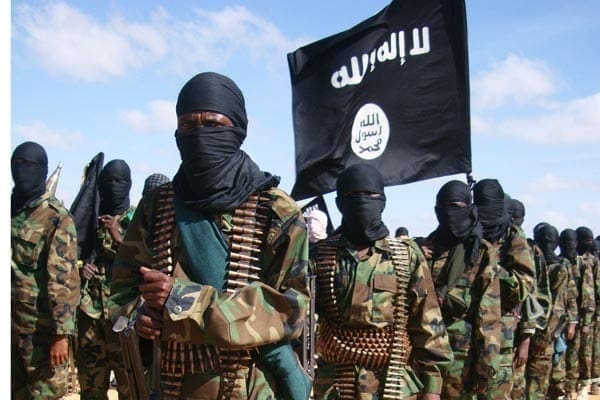Al Shabaab’s rich backers targeted in terror probe

Of particular interest are 20 accounts in local and foreign banks that police believe have been used to fund terrorism.
Investigations will target banks, forex bureaus and other avenues, which may have been used for money-laundering.
A vigorous public debate has greeted the police crackdown in its second week now, against unregistered migrants and suspected terrorist cells.
Members of Parliament from North Eastern have accused the police of harassing Kenyans of Somali ethnicity for bribes and profiling them.
There have also been claims of innocent Kenyans being rounded up and locked up.
Sunday, Inspector-General of Police David Kimaiyo, said in a telephone interview: “We are investigating some sympathisers, financial institutions and prominent financiers suspected to fund terror activities in the country.”
Separately, Directorate of Criminal Investigations boss Ndegwa Muhoro revealed that 20 foreign and local bank accounts had been earmarked for investigations.
“We have what we call a financial reporting centre, which gives all suspects transactions,” he said in Mombasa yesterday, adding, the DCI had a financial investigation unit.
Violation of human rights
Once investigators get credible evidence against people involved, they will be taken to court on the advice of the Director of Public Prosecutions, he said.
Anybody getting cash from crime will be dealt with legally, Mr Muhoro warned.
On the security crackdown in Eastleigh, Mr Muhoro asked those with evidence of violation of human rights by security officers to report to the relevant authorities.
“We will take appropriate action against any person involved in abuse of human rights,” he said. “We care for the people in our custody.”
Human rights activists have claimed that women were raped during the crackdown, but Mr Muhoro yesterday said no such cases had been reported in hospitals.
He maintained that the government was not purging any community or religious group, but was dealing with criminals.
Security agents should be allowed to screen people suspected of being in Kenya illegally, he said.
He was speaking during a course for criminal investigation chiefs in Mombasa.
While responding to pressure by a section of Muslim leaders who accused the authorities of religious and ethnic victimisation, Deputy President William Ruto reiterated that the government would not compromise on the war on terrorism.
Speaking in Murang’a County at the weekend, Mr Ruto said: “The government will pursue terror gangs wherever they hide, whether in the streets, churches or mosques. We cannot compromise on security,” he added.
The remarks came amid growing criticism of National Assembly Majority Leader Aden Duale over his threat to ditch the Jubilee coalition as a result of the clampdown on terrorists.
Mr Duale had criticised the security operation, saying, it targeted Muslims and not terrorists.
More than 200 people are to appear in court today after they were arrested and screened at the Safaricom Stadium in Kasarani at the weekend.
They include foreigners who were found to have been in Kenya illegally as well as Kenyans without identity cards despite having attained the age of 18.
The anti-terrorism operation, which started in Nairobi’s Eastleigh neighbourhood two weeks ago, has been extended to the counties, leading to 62 arrests in Nakuru at the weekend.
Mr Kimaiyo said similar operations have been conducted in Kilgoris, Kisumu, Thika, Kericho, Sotik, Kiambu, Isinya, Tala and Mombasa. Most of those arrested are foreigners without valid documents.
A Liberian, European and Ethiopians have also been seized.
Nearly 4,000 people have been arrested since the operation started.
In Mombasa, a police swoop netted more than 70 people yesterday. Relatives of those arrested thronged the Changamwe Police Station, demanding their release.
Explosive devices
Muslims for Human Rights director Khelef Khalifa questioned how the police could arrest people and then investigate whether they were innocent or not. Changamwe OCPD Joseph Muthee dismissed accusations that the police raids were targeting a particular ethnic group.
Eleven terrorist attacks, mainly using improvised explosive devices and grenades, have killed or maimed dozens of Kenyans since the beginning of the year.
The crackdown against suspected terrorists came after six people were killed and many others seriously injured in blasts in Nairobi’s Eastleigh estate targeting food kiosks on March 31.
Prior to this, detectives had intercepted a vehicle in Mombasa, which was found laden with six bombs made with military grade explosives.
Only days before the explosives were found, hooded gunmen had opened fire on worshippers at the Joy in Christ Church in Likoni, killing six people and wounding at least 15 others, including a boy — Satrine Osinya — who had a bullet in his head.
Since the Kenya Defence Forces crossed into Somalia to pursue Al-Shabaab militants following increased kidnappings and terrorist attacks on the country, more than 100 people have been killed in terrorist-related acts that left more than 400 injured.
The Westgate shopping mall raid in Westlands, in September, in which 67 people died and many more injured, was the worst attack in recent months.
-nation.co.ke
Al Shabaab’s rich backers targeted in terror probe







